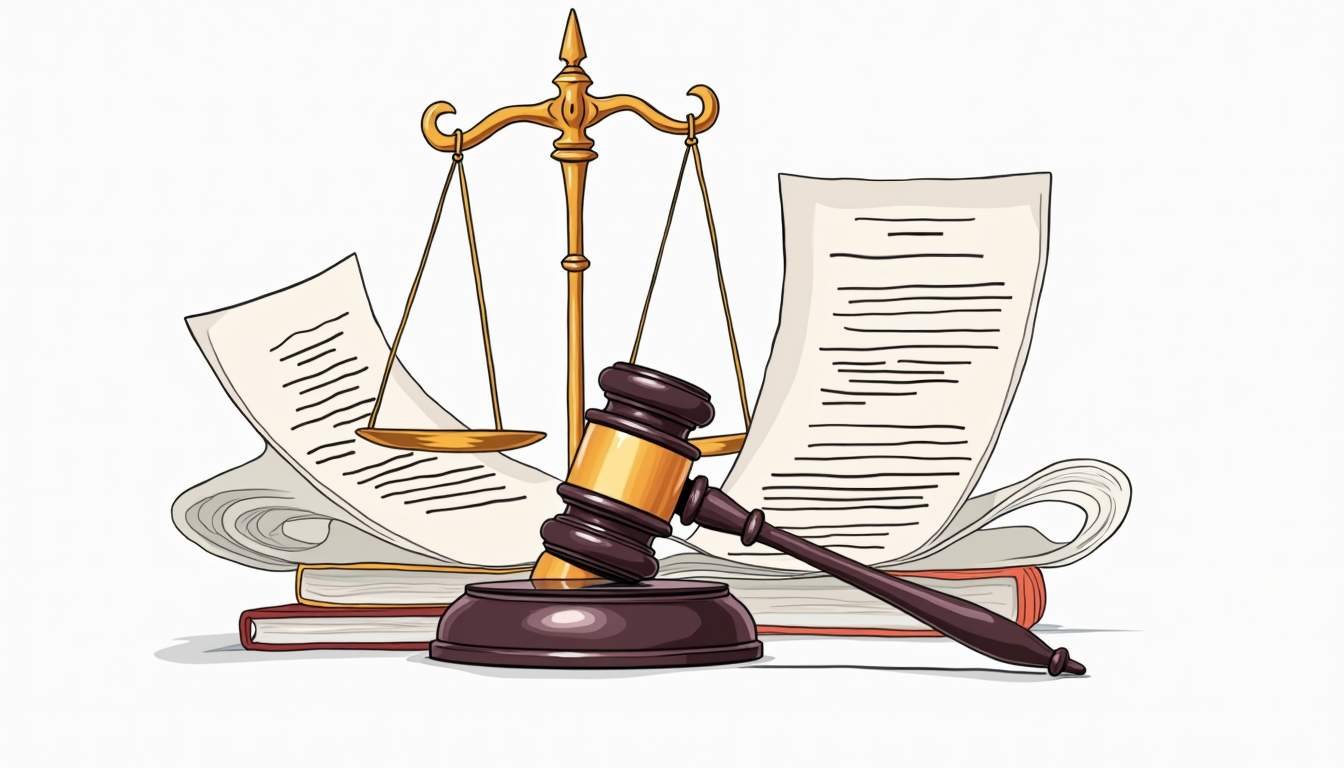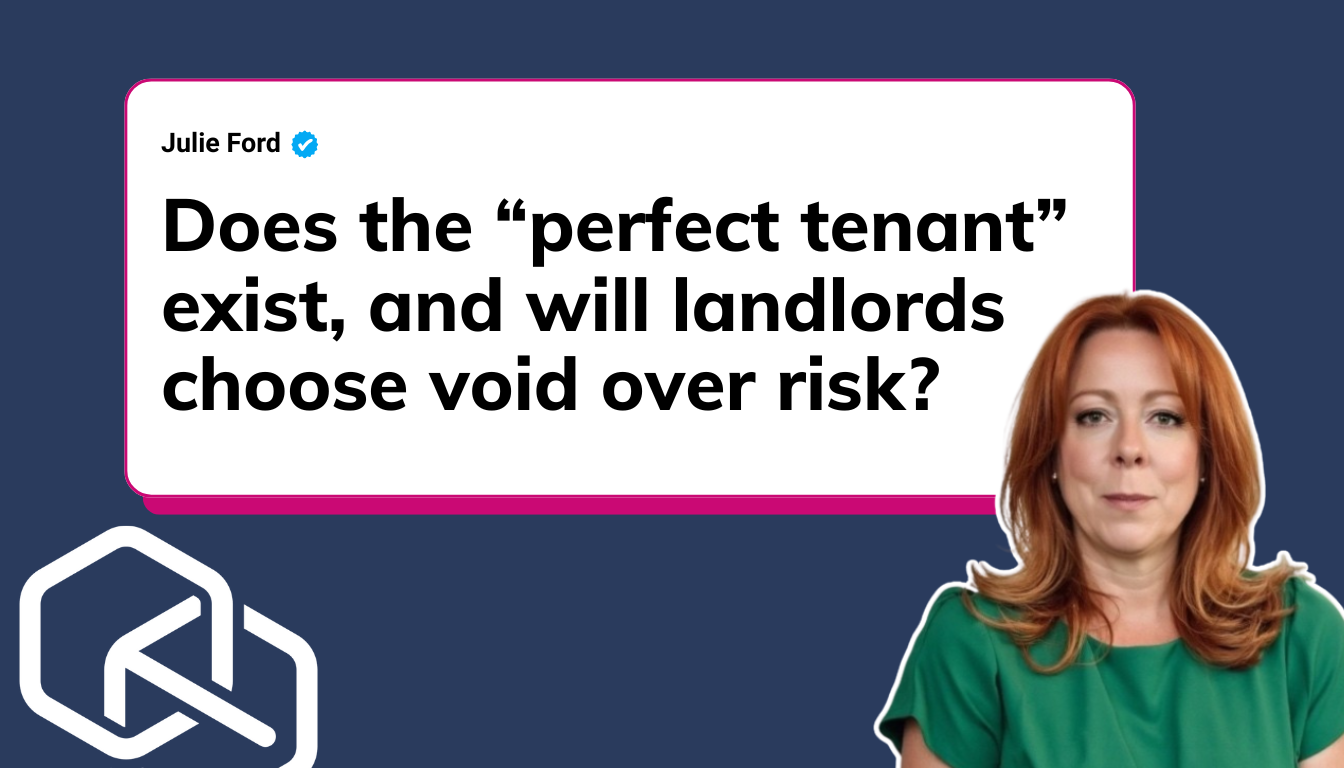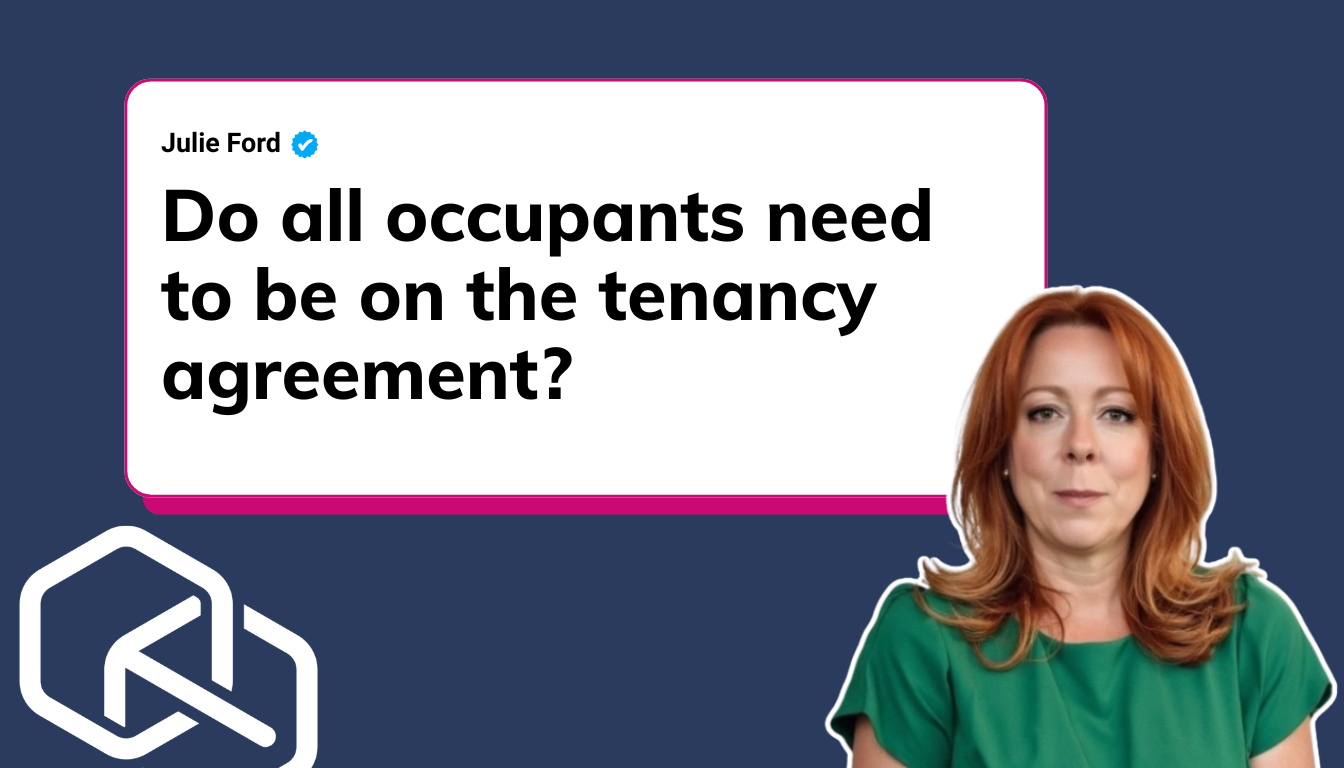Handling tenant disputes can be a challenging experience for both landlords and tenants. In the UK, the relationship between landlords and tenants is governed by various laws and regulations. Understanding how to navigate these disputes effectively is crucial for maintaining a positive rental experience.
Understanding Tenant Disputes
Tenant disputes refer to disagreements between landlords and tenants regarding the terms of a tenancy agreement or the conditions of the rented property. These disputes can arise from various issues ranging from rent payments to property maintenance responsibilities. The emotional and financial stakes involved in these disputes can make resolution challenging, often leading to prolonged conflicts that may require mediation or legal intervention.
Common Causes of Tenant Disputes
Many factors contribute to tenant disputes. Some of the most common causes include:
- Payment Issues: Delayed or missing rent payments are often at the forefront of tenant disputes. This can stem from unexpected financial hardships faced by tenants or, conversely, landlords’ failure to provide clear payment instructions.
- Disrepair Problems: Tenants may become frustrated if landlords do not adequately address repair requests. Issues such as plumbing leaks, heating failures, or pest infestations can significantly impact a tenant’s quality of life, leading to disputes over the landlord’s responsibilities.
- Noise Complaints: Issues often arise when one tenant’s activity affects another’s peace. This can include loud music, late-night gatherings, or even ongoing construction work, which can create a tense living environment.
- Deposit Retention: Conflicts can occur regarding the return of security deposits at the end of a tenancy. Disagreements often arise over what constitutes normal wear and tear versus damage, leading to disputes that can escalate into legal claims.
Understanding these common causes can help landlords and tenants prepare for potential conflicts and work towards solutions proactively. Open communication and a willingness to negotiate can often prevent these issues from escalating into more serious disputes.
The Legal Rights of Tenants and Landlords
Both parties have specific legal rights under the law. It is essential for landlords and tenants to be informed about their rights to avoid misunderstandings. For instance, tenants are entitled to a property that is safe and habitable, while landlords have the right to collect rent and to have their property returned in good condition. Additionally, tenants have the right to privacy, meaning landlords must provide adequate notice before entering the property for inspections or repairs.
Tenant rights are laid out primarily in the Housing Act 1988, which covers rental terms, eviction notices, and more. Landlords should also be aware of the implications of the Deregulation Act 2015, which includes important regulations regarding section 21 notices and eviction processes. Furthermore, local laws may impose additional requirements, such as the obligation to provide tenants with information about their rights and responsibilities. Being well-versed in these legal frameworks not only helps in preventing disputes but also fosters a more respectful and cooperative landlord-tenant relationship.
Preventing Tenant Disputes
While disputes can occur, there are several proactive steps landlords can take to prevent them from happening. Being clear and communicative from the outset can avoid many common pitfalls.
Importance of a Comprehensive Lease Agreement
A well-detailed lease agreement is crucial for preventing disputes. It should clearly outline the terms of the tenancy, including rent due dates, maintenance responsibilities, and rules surrounding the use of the property. Both parties should understand their commitments to minimize confusion later on.
Landlords are advised to have their lease agreements reviewed by a legal professional to ensure they comply with current legislation. This not only protects the property owner but also ensures the tenant knows their rights and responsibilities. Additionally, including a section that addresses dispute resolution methods can be beneficial. For instance, outlining a process for mediation or arbitration can provide a clear pathway for resolving conflicts amicably, should they arise.
Regular Property Maintenance and Inspections
To prevent disputes, landlords should conduct regular property inspections and maintenance. This shows tenants that their living environment is a priority and helps identify potential issues before they escalate.
Establish a clear communication channel with tenants regarding any concerns they may have about the property’s condition. Timely responses and action can significantly reduce the chances of disputes arising over property disrepair. Furthermore, creating a maintenance request system can empower tenants to report issues easily, ensuring that they feel heard and valued. Landlords might also consider scheduling seasonal maintenance checks, which not only keeps the property in good condition but also fosters a sense of community and trust between the landlord and tenants.
Resolving Tenant Disputes
If a dispute does arise, addressing it swiftly and effectively is key to resolving it amicably. There are various strategies that both landlords and tenants can employ to reach a resolution.
Communication and Negotiation Strategies
Open lines of communication are essential. Both parties should feel comfortable discussing issues as they arise. Active listening is just as important as clearly stating one’s position. This can often lead to a mutual understanding or compromise.
Negotiation can also play a significant role. Landlords might consider offering flexible payment arrangements during tough times, while tenants could propose solutions for minimizing conflicts. A collaborative spirit can make a difference in resolving differences. Additionally, establishing a clear set of expectations and responsibilities at the beginning of the tenancy can prevent many misunderstandings from escalating into disputes. Regular check-ins can also foster a positive relationship, allowing both parties to address minor issues before they grow into larger problems.
Mediation and Arbitration Options
If direct negotiation fails, mediation or arbitration can be effective alternatives. Mediation involves a neutral third-party mediator who helps both sides communicate and reach an agreement. This option is generally less formal and less expensive than a court proceeding. The mediator’s role is to facilitate dialogue, helping each party articulate their concerns and explore possible solutions, which can often lead to a more amicable resolution than a legal battle.
Arbitration, on the other hand, means both parties present their case to an arbitrator, who then makes a binding decision. This is more formal than mediation but can be quicker and less costly than going through the court system. It’s important for both landlords and tenants to understand the implications of arbitration, as the arbitrator’s decision is typically final and legally enforceable. Knowing this, both parties should prepare thoroughly for the arbitration process, gathering all necessary documentation and evidence to support their case, ensuring that they present their arguments as effectively as possible.
Legal Procedures in Tenant Disputes
When disputes escalate and cannot be resolved through negotiation or mediation, legal paths may become necessary. Understanding these procedures can help both landlords and tenants navigate the legal landscape of property disputes. The complexities of these disputes often hinge on the specifics of tenancy agreements, local laws, and the nature of the conflict, making it essential for both parties to be well-informed about their rights and obligations.
When to Involve a Solicitor
Involving a solicitor is advisable when the stakes become high, such as potential eviction or significant financial losses. A professional can provide guidance on the legality of actions taken by either party and help draft necessary correspondence or legal documents. This expertise is particularly valuable in understanding the nuances of tenancy laws, which can vary widely depending on the jurisdiction.
Additionally, solicitors can represent either party during negotiations or mediation, ensuring that legal rights are upheld. They can also assist in gathering evidence and preparing for court if the situation escalates. Knowing when to seek legal advice can prevent complications down the line, as early intervention can often lead to more favorable outcomes. Furthermore, having a solicitor can help demystify the legal jargon and processes involved, making the experience less daunting for those unfamiliar with the legal system.
Court Proceedings and Evictions
If all else fails, court proceedings may become necessary. This route can be lengthy and costly, and it should always be seen as a last resort. Landlords need to follow specific legal channels to evict tenants, such as serving the correct notices according to the law. Each jurisdiction has its own set of rules regarding notice periods and grounds for eviction, and failure to comply can result in significant delays or even dismissal of the case.
Tenants facing eviction should be aware of their rights and the proper procedures landlords must follow. Both parties should maintain accurate records of all communications and agreements made throughout the process, as this documentation can serve as crucial evidence in court. Additionally, tenants may have the right to contest an eviction in court, presenting their case and any relevant evidence to support their position. It is also important for both parties to be aware of any local tenant protection laws that may provide additional safeguards against unjust evictions, such as rent control measures or protections for vulnerable populations. Understanding these rights can empower tenants and encourage landlords to act responsibly and within the bounds of the law.
Aftermath of a Tenant Dispute
Once a dispute has been settled, it’s essential to reflect on the experience and its effects on the landlord-tenant relationship.
Repairing the Landlord-Tenant Relationship
Rebuilding trust can take time after a dispute. Both parties should engage in open communication to express their feelings and concerns regarding the conflict. A willingness to move forward can help mend the relationship.
Additionally, landlords may choose to reassess their property management strategies based on learnings from the dispute, while tenants can provide feedback that can enhance future interactions.
Learning from Disputes for Future Prevention
Every dispute offers an opportunity for growth. Landlords and tenants alike should take time to reflect on what led to the disagreement and how similar situations can be avoided in the future.
By implementing new practices based on past experiences—such as clearer communication or more detailed lease agreements—both parties can contribute to creating a more harmonious rental environment moving forward.
Streamline Your Property Management with COHO
As you navigate the complexities of tenant disputes, consider the benefits of a comprehensive property management solution. COHO offers a platform that can transform your approach to managing HMOs, single-lets, and student accommodations. With our user-friendly software, you can facilitate better communication, manage maintenance requests efficiently, and keep detailed records—all of which are essential for preventing and resolving tenant disputes. Take the first step towards a more harmonious landlord-tenant relationship and Try COHO for Free today.
Handling tenant disputes can be a challenging experience for both landlords and tenants. In the UK, the relationship between landlords and tenants is governed by various laws and regulations. Understanding how to navigate these disputes effectively is crucial for maintaining a positive rental experience.
Understanding Tenant Disputes
Tenant disputes refer to disagreements between landlords and tenants regarding the terms of a tenancy agreement or the conditions of the rented property. These disputes can arise from various issues ranging from rent payments to property maintenance responsibilities. The emotional and financial stakes involved in these disputes can make resolution challenging, often leading to prolonged conflicts that may require mediation or legal intervention.
Common Causes of Tenant Disputes
Many factors contribute to tenant disputes. Some of the most common causes include:
- Payment Issues: Delayed or missing rent payments are often at the forefront of tenant disputes. This can stem from unexpected financial hardships faced by tenants or, conversely, landlords’ failure to provide clear payment instructions.
- Disrepair Problems: Tenants may become frustrated if landlords do not adequately address repair requests. Issues such as plumbing leaks, heating failures, or pest infestations can significantly impact a tenant’s quality of life, leading to disputes over the landlord’s responsibilities.
- Noise Complaints: Issues often arise when one tenant’s activity affects another’s peace. This can include loud music, late-night gatherings, or even ongoing construction work, which can create a tense living environment.
- Deposit Retention: Conflicts can occur regarding the return of security deposits at the end of a tenancy. Disagreements often arise over what constitutes normal wear and tear versus damage, leading to disputes that can escalate into legal claims.
Understanding these common causes can help landlords and tenants prepare for potential conflicts and work towards solutions proactively. Open communication and a willingness to negotiate can often prevent these issues from escalating into more serious disputes.
The Legal Rights of Tenants and Landlords
Both parties have specific legal rights under the law. It is essential for landlords and tenants to be informed about their rights to avoid misunderstandings. For instance, tenants are entitled to a property that is safe and habitable, while landlords have the right to collect rent and to have their property returned in good condition. Additionally, tenants have the right to privacy, meaning landlords must provide adequate notice before entering the property for inspections or repairs.
Tenant rights are laid out primarily in the Housing Act 1988, which covers rental terms, eviction notices, and more. Landlords should also be aware of the implications of the Deregulation Act 2015, which includes important regulations regarding section 21 notices and eviction processes. Furthermore, local laws may impose additional requirements, such as the obligation to provide tenants with information about their rights and responsibilities. Being well-versed in these legal frameworks not only helps in preventing disputes but also fosters a more respectful and cooperative landlord-tenant relationship.
Preventing Tenant Disputes
While disputes can occur, there are several proactive steps landlords can take to prevent them from happening. Being clear and communicative from the outset can avoid many common pitfalls.
Importance of a Comprehensive Lease Agreement
A well-detailed lease agreement is crucial for preventing disputes. It should clearly outline the terms of the tenancy, including rent due dates, maintenance responsibilities, and rules surrounding the use of the property. Both parties should understand their commitments to minimize confusion later on.
Landlords are advised to have their lease agreements reviewed by a legal professional to ensure they comply with current legislation. This not only protects the property owner but also ensures the tenant knows their rights and responsibilities. Additionally, including a section that addresses dispute resolution methods can be beneficial. For instance, outlining a process for mediation or arbitration can provide a clear pathway for resolving conflicts amicably, should they arise.
Regular Property Maintenance and Inspections
To prevent disputes, landlords should conduct regular property inspections and maintenance. This shows tenants that their living environment is a priority and helps identify potential issues before they escalate.
Establish a clear communication channel with tenants regarding any concerns they may have about the property’s condition. Timely responses and action can significantly reduce the chances of disputes arising over property disrepair. Furthermore, creating a maintenance request system can empower tenants to report issues easily, ensuring that they feel heard and valued. Landlords might also consider scheduling seasonal maintenance checks, which not only keeps the property in good condition but also fosters a sense of community and trust between the landlord and tenants.
Resolving Tenant Disputes
If a dispute does arise, addressing it swiftly and effectively is key to resolving it amicably. There are various strategies that both landlords and tenants can employ to reach a resolution.
Communication and Negotiation Strategies
Open lines of communication are essential. Both parties should feel comfortable discussing issues as they arise. Active listening is just as important as clearly stating one’s position. This can often lead to a mutual understanding or compromise.
Negotiation can also play a significant role. Landlords might consider offering flexible payment arrangements during tough times, while tenants could propose solutions for minimizing conflicts. A collaborative spirit can make a difference in resolving differences. Additionally, establishing a clear set of expectations and responsibilities at the beginning of the tenancy can prevent many misunderstandings from escalating into disputes. Regular check-ins can also foster a positive relationship, allowing both parties to address minor issues before they grow into larger problems.
Mediation and Arbitration Options
If direct negotiation fails, mediation or arbitration can be effective alternatives. Mediation involves a neutral third-party mediator who helps both sides communicate and reach an agreement. This option is generally less formal and less expensive than a court proceeding. The mediator’s role is to facilitate dialogue, helping each party articulate their concerns and explore possible solutions, which can often lead to a more amicable resolution than a legal battle.
Arbitration, on the other hand, means both parties present their case to an arbitrator, who then makes a binding decision. This is more formal than mediation but can be quicker and less costly than going through the court system. It’s important for both landlords and tenants to understand the implications of arbitration, as the arbitrator’s decision is typically final and legally enforceable. Knowing this, both parties should prepare thoroughly for the arbitration process, gathering all necessary documentation and evidence to support their case, ensuring that they present their arguments as effectively as possible.
Legal Procedures in Tenant Disputes
When disputes escalate and cannot be resolved through negotiation or mediation, legal paths may become necessary. Understanding these procedures can help both landlords and tenants navigate the legal landscape of property disputes. The complexities of these disputes often hinge on the specifics of tenancy agreements, local laws, and the nature of the conflict, making it essential for both parties to be well-informed about their rights and obligations.
When to Involve a Solicitor
Involving a solicitor is advisable when the stakes become high, such as potential eviction or significant financial losses. A professional can provide guidance on the legality of actions taken by either party and help draft necessary correspondence or legal documents. This expertise is particularly valuable in understanding the nuances of tenancy laws, which can vary widely depending on the jurisdiction.
Additionally, solicitors can represent either party during negotiations or mediation, ensuring that legal rights are upheld. They can also assist in gathering evidence and preparing for court if the situation escalates. Knowing when to seek legal advice can prevent complications down the line, as early intervention can often lead to more favorable outcomes. Furthermore, having a solicitor can help demystify the legal jargon and processes involved, making the experience less daunting for those unfamiliar with the legal system.
Court Proceedings and Evictions
If all else fails, court proceedings may become necessary. This route can be lengthy and costly, and it should always be seen as a last resort. Landlords need to follow specific legal channels to evict tenants, such as serving the correct notices according to the law. Each jurisdiction has its own set of rules regarding notice periods and grounds for eviction, and failure to comply can result in significant delays or even dismissal of the case.
Tenants facing eviction should be aware of their rights and the proper procedures landlords must follow. Both parties should maintain accurate records of all communications and agreements made throughout the process, as this documentation can serve as crucial evidence in court. Additionally, tenants may have the right to contest an eviction in court, presenting their case and any relevant evidence to support their position. It is also important for both parties to be aware of any local tenant protection laws that may provide additional safeguards against unjust evictions, such as rent control measures or protections for vulnerable populations. Understanding these rights can empower tenants and encourage landlords to act responsibly and within the bounds of the law.
Aftermath of a Tenant Dispute
Once a dispute has been settled, it’s essential to reflect on the experience and its effects on the landlord-tenant relationship.
Repairing the Landlord-Tenant Relationship
Rebuilding trust can take time after a dispute. Both parties should engage in open communication to express their feelings and concerns regarding the conflict. A willingness to move forward can help mend the relationship.
Additionally, landlords may choose to reassess their property management strategies based on learnings from the dispute, while tenants can provide feedback that can enhance future interactions.
Learning from Disputes for Future Prevention
Every dispute offers an opportunity for growth. Landlords and tenants alike should take time to reflect on what led to the disagreement and how similar situations can be avoided in the future.
By implementing new practices based on past experiences—such as clearer communication or more detailed lease agreements—both parties can contribute to creating a more harmonious rental environment moving forward.
Streamline Your Property Management with COHO
As you navigate the complexities of tenant disputes, consider the benefits of a comprehensive property management solution. COHO offers a platform that can transform your approach to managing HMOs, single-lets, and student accommodations. With our user-friendly software, you can facilitate better communication, manage maintenance requests efficiently, and keep detailed records—all of which are essential for preventing and resolving tenant disputes. Take the first step towards a more harmonious landlord-tenant relationship and Try COHO for Free today.











